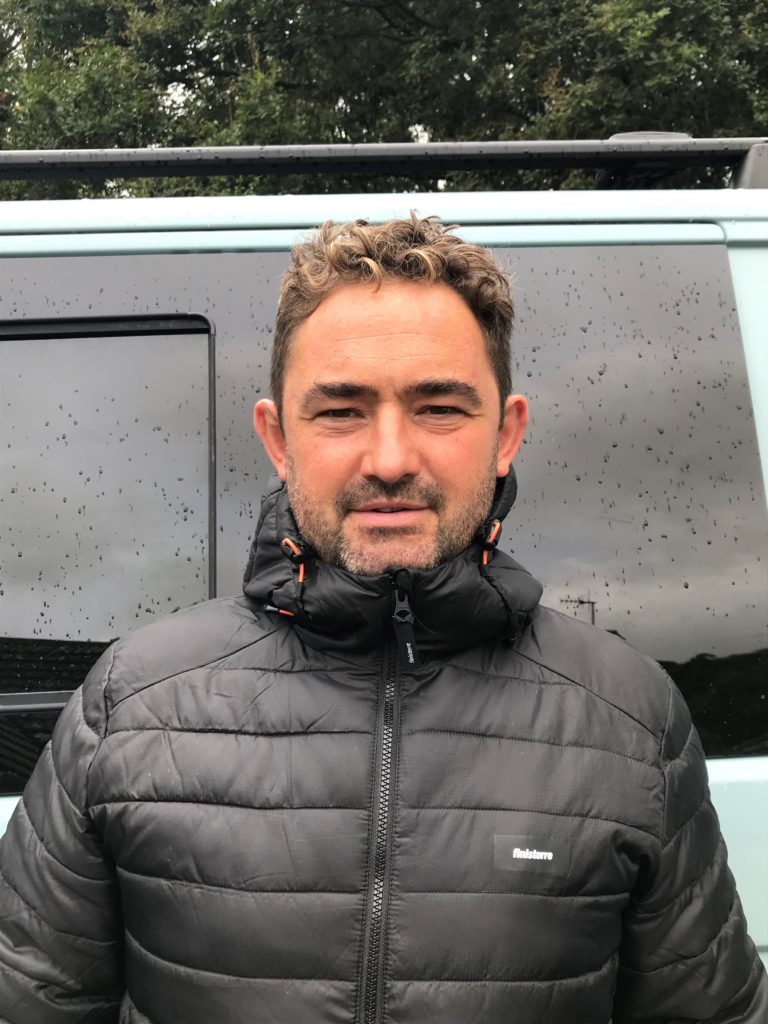The Feel Good Factor
Feel Good founder Ed Woolner talks drinks, surfing and seagrass

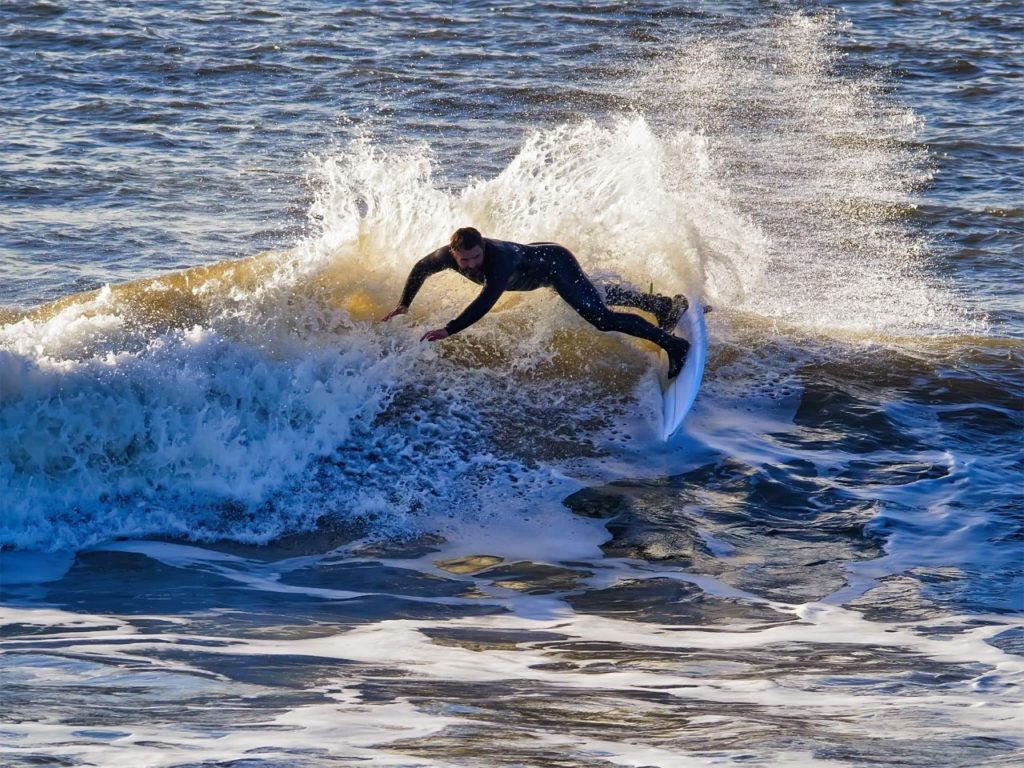
What do sea grass, surfing and start-ups have to do with each other? The answer is Ed Woolner, surfer and founder of Feel Good drinks. We spoke to him about his love of the big blue, what drives him in business and his pioneering carbon capture project.
What makes you feel good?
Put simply, freedom. I don’t like rules or the suffocation of cities. I’m drawn to the sea and love surfing, fishing and fell running. Anything that keeps me outdoors.
You grew up by the sea and moved back there after university. What draws you back?
The sea is in my blood. My family are all sailors and I grew up on the Gower peninsula. My parents moved to London when I was 16 but I wasn’t interested in city life so ended up staying in the Mumbles living in a friends’ caravan – working and surfing. I chose Swansea University to stay close to the coast and after graduating moved to London to start work. It lasted 5 weeks before I handed in my resignation, got a bus back to Swansea and surfed that very evening.
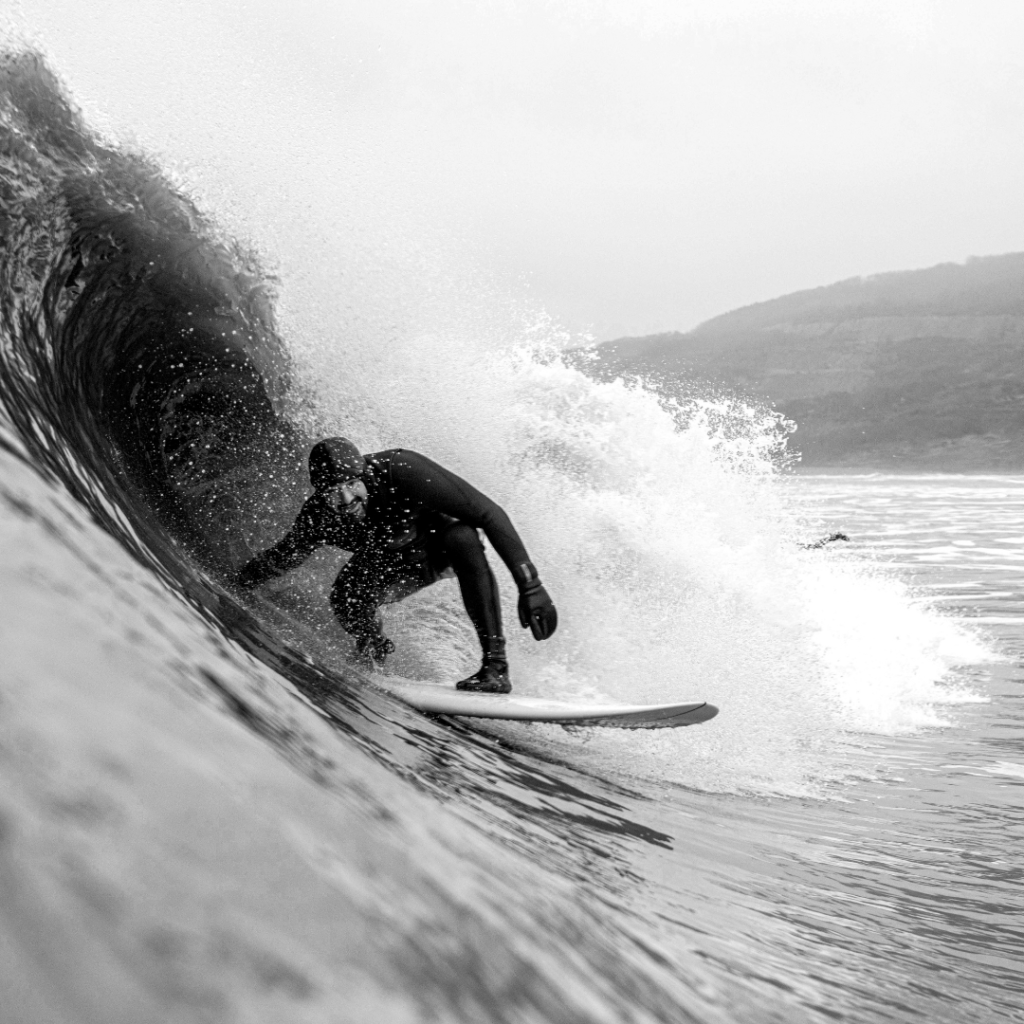
How has your love of the sea influenced the way you see the planet and the way you do business?
Living by the sea creates a higher state of awareness of the world around you. It teaches you to be cautious and respectful, as well as acutely conscious of how much damage we’re inflicting on this fragile ecosystem. It also gives you a sense of purpose beyond the normal traits of success and can help to bring together communities with a common goal – to protect our local environment. I want my children’s children to enjoy the opportunities and experiences I’ve had. The only way to do that is to take responsibility on a corporate level as well as at the grass roots.
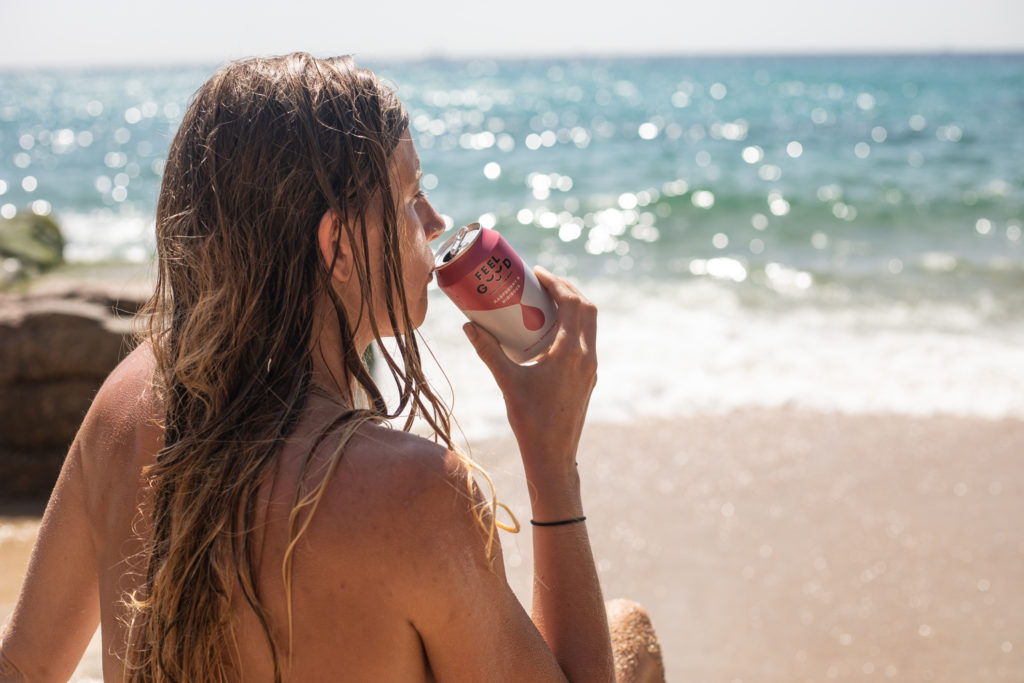
What’s different about Feel Good drinks?
When I started Feel Good I didn’t focus on trying to sell more. It was important to me to create a purpose driven brand that made decisions focused on trying to be the best we could be. This meant looking at our impact across all areas of the business from the distribution, operation, warehousing and manufacturing. Understanding the supply chain so that you’re proud of every supplier, every logistic and every ingredient is essential. We don’t look at our competitive edge, we look at our carbon footprint, how ethical is our packaging, how much food waste do we produce. Change needs to come from within the industry, so it’s important to share our vision and help influence other brands by being fully accountable and raising awareness of our environmental impact.
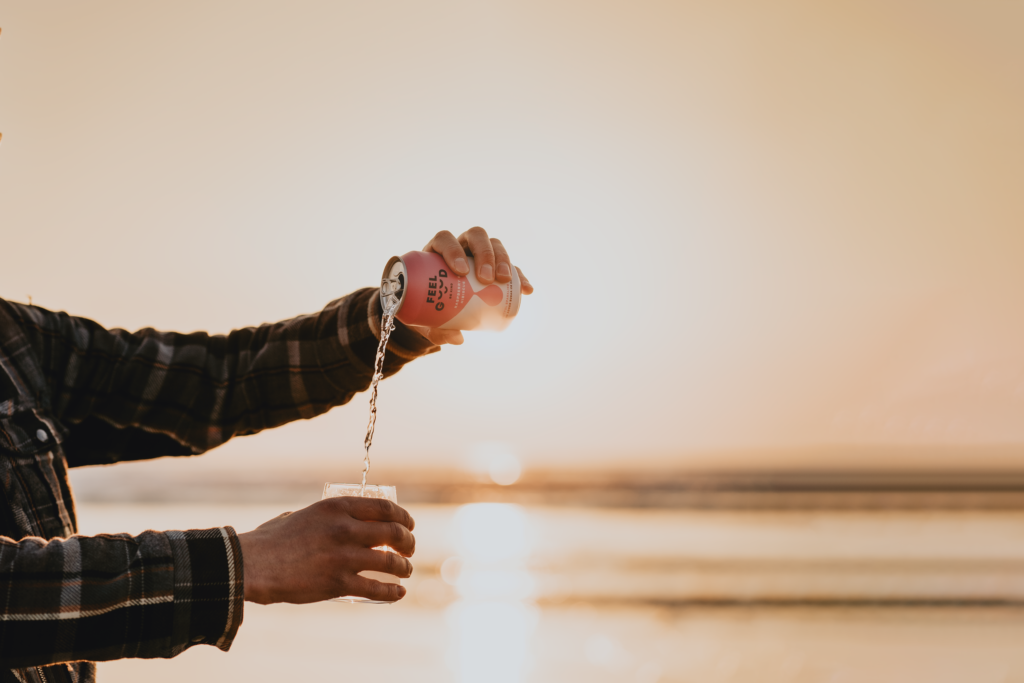
Tell us about Project Seagrass?
We wanted to reduce our carbon footprint and focusing on blue carbon – when it’s stored in coastal and marine ecosystems – felt like a natural fit. Our initial research took us as far afield as planting mangrove trees in Australia, but we were keen to work more locally. Project Seagrass is an initiative devoted to supporting seagrass ecosystems that provide biodiversity, equitable and sustainable livelihoods, and planetary life support. One of the challenges they were facing was growing and harvesting seeds to plant new seagrass meadows. We came up with the idea of ‘You buy. We plant’ where for every 12 cans of Feel Good bought, we plant one seed of seagrass. We’ve invested in a seagrass nursery in Laugharne, the first in the UK, to make picking and distributing the seeds easier and more cost effective. It’s exciting, ground-breaking marine conservation work that will help to capture carbon whilst supporting our marine habitats.
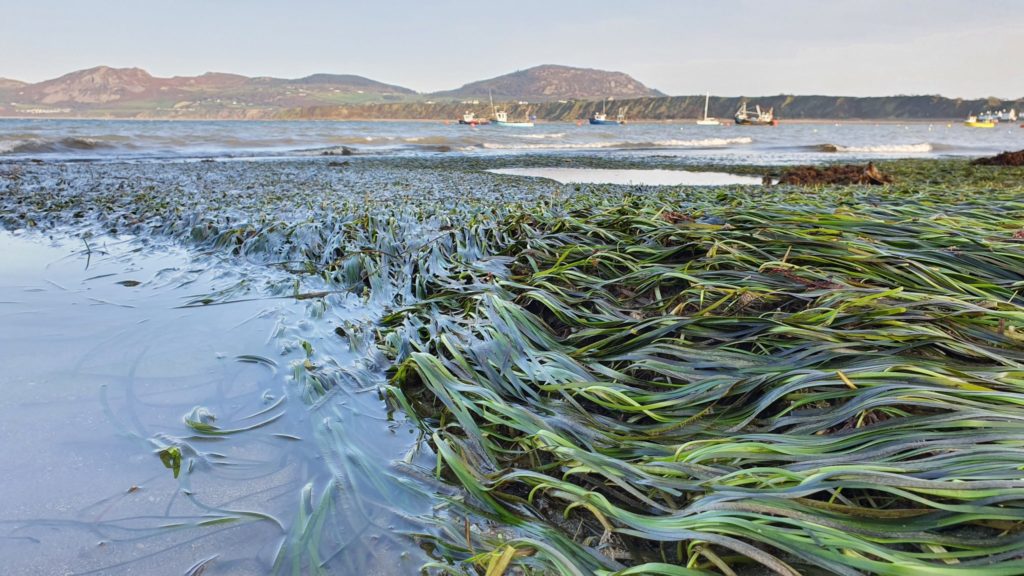
Where are your favourite spots to surf in the UK?
It’s not so well known, but probably Langland where I grew up. I started surfing there when I was 8 and still go back at least once a year. North Cornwall is beautiful, particularly Watergate Bay and Penhale Corner, but I also love the rugged, fickle nature of the West Dorset surf, it’s brilliantly inconsistent, windy and stormy.
If you weren’t running Feel Good what would you be doing?
I’d spend more time focusing on public speaking, lecturing or coaching young people to inspire them to think differently and to help them start their own businesses. The next generation have a new set of challenges and don’t feel constrained by the same boundaries – it’s an exciting, brave new world.
